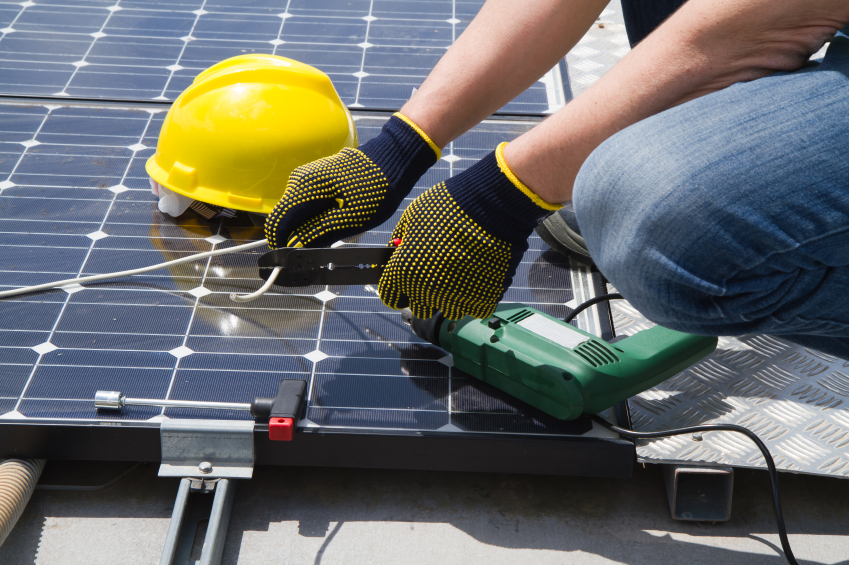Across the world, more and more people are investing in solar panels as an alternative power option that is both cost-saving and environmental-friendly in the long run. Solar power systems and solar power technology have developed greatly in recent years with equipment that is now less costly, thus, allowing people to outfit their homes with more reasonably priced solar panels.
Solar panels are great for generating power and can save significant money for both homeowners and in commercial use but there are various legal requirements which govern their installation and use. For instance, there are safety standards as well as code compliance regulations involved in the process of installation that you need to consider whether your solar panels are installed by a licensed professional or on your own. Furthermore, building permits and other rules related to installing solar panels with their paperwork need to be correctly followed and submitted. Homeowners as well as developers who are looking to cut energy costs with a solar power system should comply with specific registration requirements that are applicable in their area of residence.
This article is a guide to the legal requirements for installing solar panels. What to Consider Before
Installing A Solar Panel
Before you commit to investing in a solar panel, you should first calculate your energy needs and costs to make sure that it is a viable option for you. For instance, it is helpful to check your energy bills to correctly determine your energy usage in recent months. By having an accurate estimate of your electricity usage, you can choose the solar power system that is most suitable for both your needs and your current financial situation. This will help you to understand clearly whether using solar panels will reduce your current costs for electricity.
Working with A Solar Provider
Switching to solar power energy is a major decision that comes with long-term investment. Therefore, many people prefer to work with a certified solar contractor to ensure that their needs are met, their solar panels are installed with high quality, and that all local laws and permit regulations are correctly followed. By working with a solar contractor, you will be assisted by a professional so that you can better understand the process of installation, what to expect with solar power energy, and learn more about grid-connection and metering processes. Moreover, most reputable solar providers offer good after-sale support as well.
Location Specific Permits
Building regulations, permits and their disputes can be challenging and time-consuming. It is best to pay attention to permits that are specific to where you are living. This is why it is strongly advised that you only work with a registered and certified installer with compliance to the Microgeneration Certification Scheme (MCS) who will be able to help you navigate the complex web of the various rules and regulations. In California, for example, where there are many solar panels, a local installer in the Orange County area will know exactly what you need to do to stay above board according to California law. A number of states in the U.S. require roofs to have at least three feet of empty space surrounding a solar panel. Meanwhile, in other states, you are allowed to install solar panels across the entire surface area of your roof.
Building Regulations
If you want to install solar panels on your roof, you need to follow building regulations. Keep in mind that regardless of whether your solar panel installation needs planning permission, solar panel installations will nonetheless need to pass building regulations, just like many other home improvements. There are two main areas of building regulations that you need to be aware of; the structural safety of the building and the electrical safety of the building. As for the structural safety guidelines, your roof must be strong enough to be able to support the weight of the new rooftop solar panels.
During the pre-inspection process, some strengthening work for the roof is normally required. As for the electrical safety guidelines, you need to prove that the electrics of the new solar panel system are safe. Keep in mind that other safety guidelines such as safety practices and standard health requirements must be complied with as well. If you work with a solar panel installer, you normally will not normally need to submit the building regulation application by yourself. However, you need to make sure your installer is a member of approved groups such as the Competent Persons Scheme (CPS) or is certified by the Microgeneration Certification Scheme (MCS).
Feed-In Tariffs
Whether you are using solar panels for your residential property or commercial uses, you could qualify under the FIT scheme, in which a feed-in tariff can pay you for the excess power generated by your solar power system. The qualifications for feed-in tariffs include producing up to 5 MW of electricity, and having an accredited and registered installation. Regarding paperwork, you will need an Energy Performance Certificate (EPC) with a rating from D or above and a Microgeneration Certification Scheme (MCS) certification.
Permitted Developments and Planning Permission
As stated above, most solar panel installations do not require a planning permission as solar panels are considered as Permitted Developments (PD). However, solar panel installations will need permission in the following cases: (1) the solar panels are installed above the highest point of the property (with the exclusion of chimneys); (2) the solar panels affect greatly the property’s external appearance and surrounding area; and (3) the solar panels extend beyond 200mm from the surface of the property’s roof. Similarly, your solar panel installation will need to submit for a planning permission from the local authority in the following cases: (1) the solar panels fail to meet Permitted Development requirements; (2) the solar panels will be installed on listed buildings; (3) the solar panels will be installed on world’s heritage sites; and (4) the solar panels are installed as standalone units. For more information, it is best that you contact your local authority for more precise requirements.
Solar power systems have gained more popularity in recent years as they help many homeowners and business owners save money on their monthly utility bills whilst at the same time reducing their carbon footprint. Despite many incentives for switching to renewable energy sources such as solar energy, you should take into consideration all the legal requirements involved before installing new solar panels on your roof to avoid costly fines and legal problems.





















